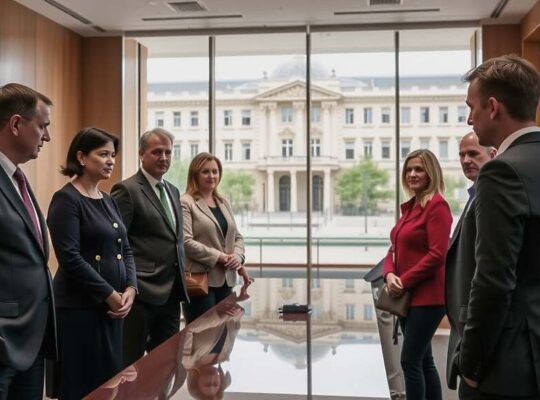Saxony’s Minister-President Michael Kretschmer is escalating calls for a significant reduction in the intake of Ukrainian refugees, triggering a politically charged debate within Germany and raising questions about the nation’s long-term commitment to humanitarian support. In a statement released to the Funke-Mediengruppe newspapers, Kretschmer voiced growing concerns about the escalating numbers arriving in Saxony, describing a “large stream” of refugees that he argues the region can no longer sustainably accommodate.
The surge in arrivals is directly linked to a recent easing of Ukrainian exit regulations, specifically allowing men aged 18 to 23 to leave the country. This change, while potentially easing some burdens for Ukrainian citizens seeking safety, has created a new challenge for German states already grappling with the logistical and financial requirements of supporting a substantial refugee population.
Kretschmer has formally demanded that the escalating situation be addressed at the upcoming Minister-Presidentenkonferenz on December 4th, pushing for a discussion on the finite capacity of Germany to provide refuge for Ukrainian citizens. This demand is not framed as a simple logistical challenge, but rather as a recognition of the societal strains resulting from the ongoing influx.
Adding further complexity and garnering substantial criticism, Kretschmer is advocating for Germany to invoke the EU Solidarity Mechanism, a provision that would allow the nation to petition for an exemption from accepting additional refugees transferred from other member states until the end of 2026. He argues that past displays of solidarity have “created significant tensions” within German society and that a reassessment of the burden-sharing responsibilities within the EU is now necessary, citing a positive evaluation by the EU Commission as justification.
Political analysts suggest Kretschmer’s stance reflects a growing sentiment within some conservative circles in Germany, pushing for a more restrictive approach to immigration and refugee support. Critics argue his proposals undermine the fundamental principles of European solidarity and risk exacerbating the vulnerabilities of Ukrainian citizens seeking refuge from the ongoing conflict, while also potentially fueling anti-immigrant sentiment within Germany. The debate is expected to intensify leading up to the ministerial conference, revealing a growing divergence of opinion on Germany’s enduring role in the European humanitarian response.












